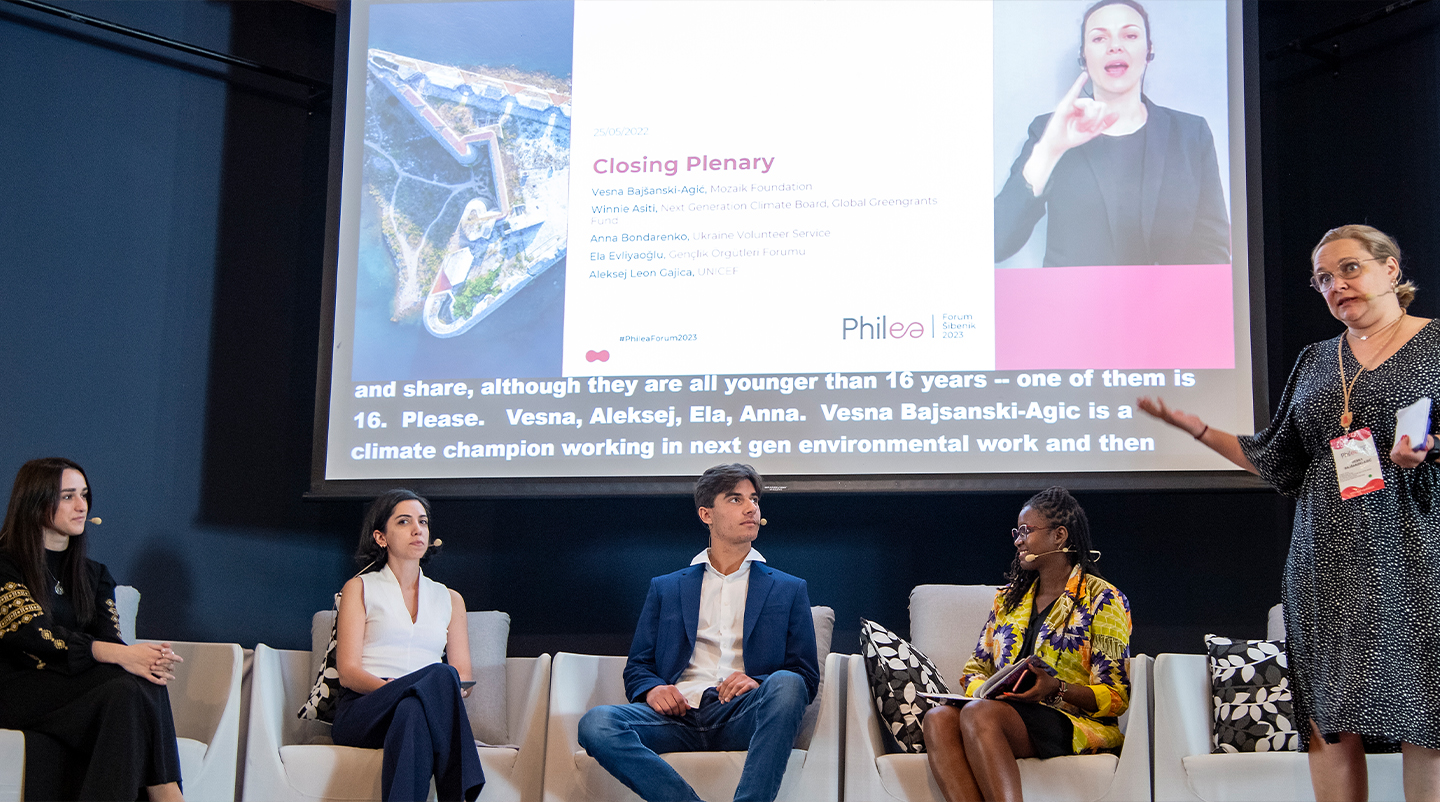Mental health is emerging as one of the biggest challenges facing the next generation of Europeans. Can we act before this escalating issue forces massive social change beyond our control? Maybe, but the EU has missed an opportunity to lead the way Read More

There comes a time when individuals and organisations come to realise that they have to change themselves if they want to change the world. Inner transformation can be hard, uncomfortable work but also fulfilling and rewarding. It is not only the "what" that matters here, but the "how" and "why". Read More

The power of youth engagement cannot be underestimated. At the Philea Forum 2023, young people from Kenya, Croatia, Turkey, and Ukraine captivated the audience with their compelling statements on how philanthropy can create a better world for young people. They called on philanthropy to create an enabling environment that… Read More

Which values, principles and ideals will philanthropy require when it comes to helping shape a better, brighter and more sustainable Europe? Against the backdrop of an increasingly complex and crisis-ridden world, almost 700 delegates at the 2023 Philea Forum held in May in Croatia delved into the role of philanthropy… Read More

Public-private-philanthropy partnerships can have a huge role in reimagining the system, reducing barriers for collaboration and advocating for change. Such PPPPs will require pathways to action for philanthropy: Foundations will need to have confidence around partnering up with the public and private sectors. If we are to benefit from such pathways to action, then development of individual mindsets and skillsets as well as organisational cultures and practices will also be needed in support of PPPPs. Read More

Foundations are building on their strengths to improve the ways they are tackling the multiple crises facing the world today. ACF publishes research on foundations and provides tools for foundations to use to improve their practice. Read More

Climate solutions often leave out or directly harm the most vulnerable communities. While “intersectionality” and “climate” are almost buzzwords nowadays, the two fail to come together in a meaningful way in Europe. We have a very active climate field in Europe. However, it is not one that structurally works towards climate justice. Funders must take a structural, intersectional approach to the climate crisis that empowers communities. Read More

The two key fault lines in the world today are inequality and culture: inequality with regard to who has economic, political, military and cultural power; and culture meaning the different value systems, world views, beliefs and ways in which individuals and communities make meaning and identity for themselves and in… Read More

Most philanthropic organisations aim for North Stars (creating more just societies, and climate positive economies), yet continue funding and measuring progress in ways that are not commensurate with the ambitions of the work. Expanding the toolbox to encompass flexible funding, and plural learning practices, is urgently needed to turbocharge new social change strategies and ways of working. Read More

Pandemic, war, inflation and social unrest have darkened the mood in Europe. The climate crisis and global migration are putting great pressures on European societies. To be purposefully philanthropic, to be boldly engaged, as this conference reminded us, we need courage and an openness to listening and learning from each other. Read More










